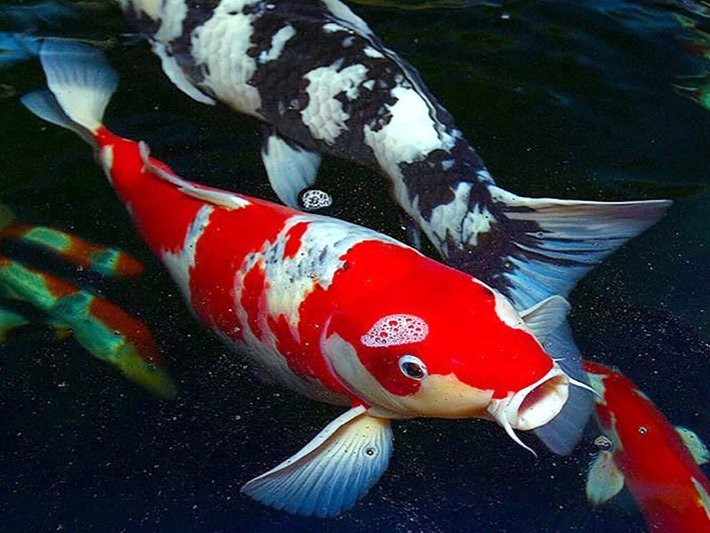
The Comprehensive Guide to Koi Health: Unveiling Common Ailments
Koi, renowned for their vibrant colors and playful demeanor, make owning a koi pond an enriching experience. However, just like any cherished pets, koi are susceptible to a myriad of health issues. In this comprehensive guide, we’ll delve into an extensive exploration of the most prevalent health problems that koi may encounter, encompassing parasites, fungal infections, bacterial infections, and beyond. Additionally, we’ll equip you with insights on how to identify, address, and prevent these issues, ensuring the well-being of your aquatic companions.
Parasites in Koi: Navigating the Underwater Menace
Parasites stand out as one of the foremost health concerns for koi. From the notorious ich (white spot disease) and flukes to velvet and lice, these intruders manifest symptoms such as skin irritation, loss of appetite, and distinctive white spots on the fins and body. Swift action is crucial if you suspect a parasitic infestation to prevent its spread. Detection methods include skin scrapes or microscopic examination of the fish’s gills. Treatment involves the use of parasitic medications like formalin and malachite green, complemented by the addition of aquarium salt to alleviate stress on the fish.
Fungal Infections in Koi: Battling Cotton-Like Growth
Fungal infections pose another formidable challenge for koi, marked by white cotton-like growths on the skin, fins, and mouth, coupled with redness, swelling, and skin irritation. Timely intervention is imperative to curb the spread of the infection. Diagnosis involves microscopic examination of a skin sample. Treatment strategies encompass antifungal medications like ketoconazole and copper sulfate, coupled with a focus on water quality improvement to reduce stress on the fish.
Bacterial Infections in Koi: Confronting the Culprits
Bacterial infections emerge as yet another hurdle for koi, manifesting in symptoms such as redness, swelling, and skin ulcerations. Rapid response is key to treating the problem and preventing its escalation. Diagnosis mirrors that of fungal infections, with microscopic examination of a skin sample. Antibiotics such as erythromycin and tetracycline are commonly employed, accompanied by efforts to enhance water quality and alleviate stress on the fish.
Safeguarding Koi Health for the Long Haul
In conclusion, an awareness of the common health problems that koi may encounter is paramount. By diligently monitoring your koi, promptly addressing suspected issues, and providing optimal care, you can contribute to the longevity and happiness of your koi for years to come. Dive into the world of koi keeping armed with knowledge and commitment to ensuring the well-being of these majestic aquatic companions.
Matthew Adlington





